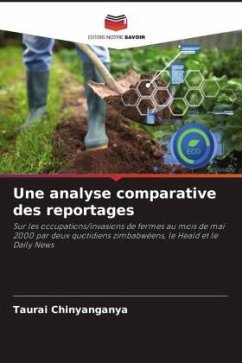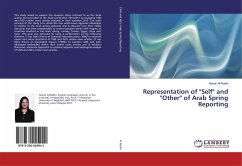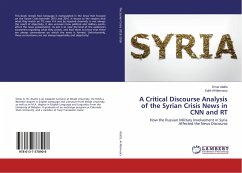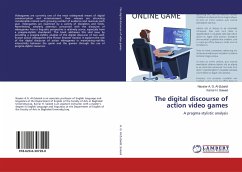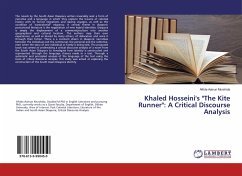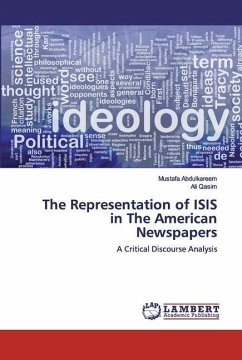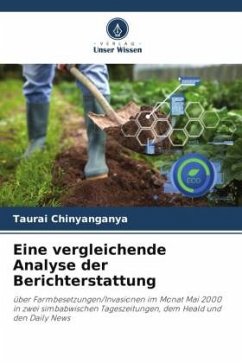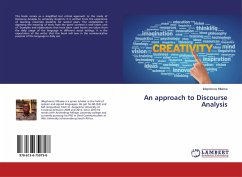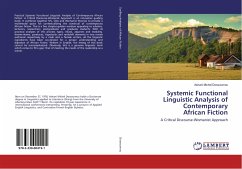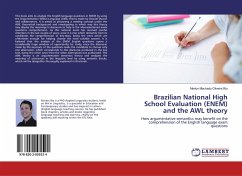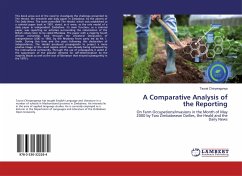
A Comparative Analysis of the Reporting
On Farm Occupations/Invasions in the Month of May 2000 by Two Zimbabwean Dailies, the Heald and the Daily News
Versandkostenfrei!
Versandfertig in 6-10 Tagen
27,99 €
inkl. MwSt.

PAYBACK Punkte
14 °P sammeln!
This book arose out of the need to investigate the challenge presented to The Herald, the erstwhile sole daily paper in Zimbabwe, by the advent of The Daily News. The state-controlled The Herald, which was established as a colonial paper back in 1891, stood, as it were, as the role model of a daily paper in independent Zimbabwe. Its main function, as a colonial paper, was reporting on activities surrounding the colonization of the British colony later to be called Rhodesia. The paper with a majority South African ownership, lived through the Unilateral Declaration of Independence (UDI) in 1965...
This book arose out of the need to investigate the challenge presented to The Herald, the erstwhile sole daily paper in Zimbabwe, by the advent of The Daily News. The state-controlled The Herald, which was established as a colonial paper back in 1891, stood, as it were, as the role model of a daily paper in independent Zimbabwe. Its main function, as a colonial paper, was reporting on activities surrounding the colonization of the British colony later to be called Rhodesia. The paper with a majority South African ownership, lived through the Unilateral Declaration of Independence (UDI) in 1965, by the Rhodesia Front party led by Mr. I. Smith. During this time and the years following this declaration of independence, The Herald produced propaganda to project a more positive image of the racist regime which was already being ostracized by the international community. Through the use of propaganda it aided in the suppression of the popular demand for self-determination by the majority blacks as well as the war of liberation that ensued subsequently in the 1970's.



